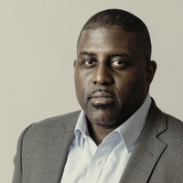 Oliver Contreras/Pool/ABACAPRESS.COM via Reuters Oliver Contreras/Pool/ABACAPRESS.COM via ReutersJust over a year ago the White House held its U.S.-Africa Leaders Summit with several diplomatic ceremonies. It was seen as the start of a major upgrade for Africa in America’s foreign policy priorities. At the peak of the events, President Joe Biden welcomed 49 African leaders in Washington D.C. and his team strongly suggested he would visit the continent by the end of 2023. But that visit never happened. While most Africa watchers agree a presidential visit to a few African countries is mostly symbolic, with events unfolding in Ukraine’s war with Russia and then Israel’s deadly battle with Hamas, it’s starting to feel like Africa has dropped back down the U.S. priorities list. Judd Devermont, the president’s special assistant on Africa affairs, rejects that view. He argues that though Biden didn’t visit, there was “an unprecedented pace of senior-level travel to Africa” visiting 26 countries this year. That included visits by Vice President Kamala Harris and Treasury Secretary Janet Yellen. Devermont also noted the U.S. has pledged to invest $55 billion in Africa over the next three years. Ultimately, nobody in Africa demanded a U.S. presidential visit, said W. Gyude Moore, a senior fellow at the Center for Global Development in Washington and former Liberian minister. “But they promised it and there is always skepticism that when it comes to Africa that rhetoric always over-performs substance.” The Biden administration is trying to position its bets in Africa as being worthwhile investments in themselves — but there should be little doubt it has an eye on China and, more recently, on Russia. The recent visit by Angolan President João Lourenço was a reminder of the biggest U.S. bet in Africa — the $14 billion Lobito Corridor logistics project which connects Angola, DR Congo and Zambia. Biden is unlikely to conduct non-essential international trips in 2024 as it’s an election campaign year. But if there was one country he would visit, it could well be Angola, argues Peter Pham, a former U.S. special envoy for Africa’s Great Lakes Region. “While it would be good to get the president to visit Africa, ultimately what is more important is delivering significant strategic transformative programs like the Lobito Corridor, not social calls.” — Yinka | 









